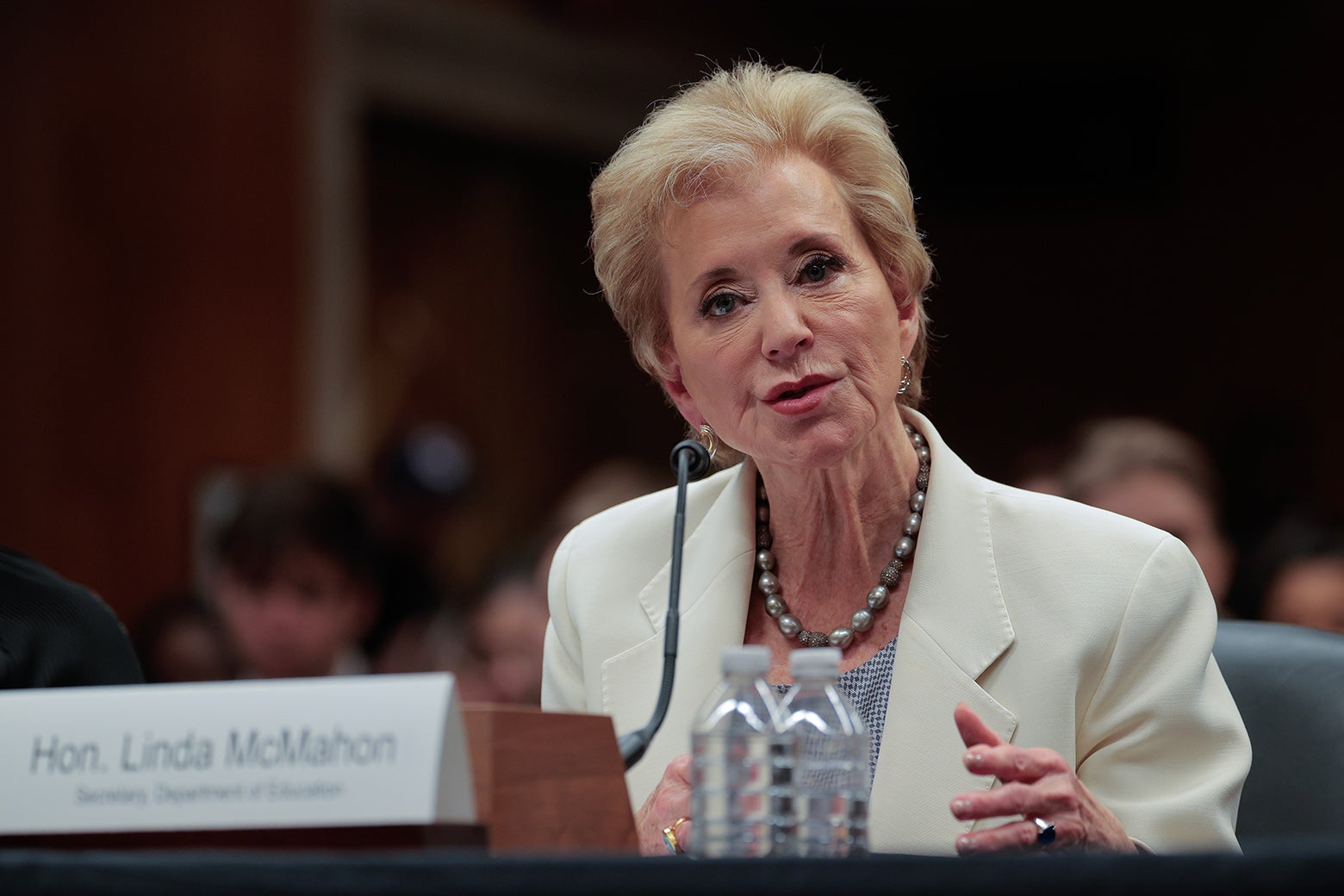Top Stories
Urgent Update: Special Education Oversight Faces Unprecedented Cuts

UPDATE: The federal government shutdown is causing alarming disruptions in special education services across the United States, with significant cuts potentially impacting children with disabilities for decades. In a shocking move, over 100 Department of Education employees who were responsible for overseeing special education have received reduction-in-force notices. This critical workforce, which has ensured equitable resource distribution since the 1970s, is now facing an uncertain future.
A recent court ruling has temporarily halted these firings, but many parents, including Pepper Stetler, whose 13-year-old daughter Louisa has Down syndrome, remain deeply concerned. Stetler, a professor focusing on education and disability, highlighted the longstanding importance of federal oversight in protecting the educational rights of disabled children.
“The federal government has acted as a watchdog for over 50 years, ensuring that states uphold the right to education for children with disabilities,” Stetler explained. “Without this oversight, we risk losing decades of progress.”
Authorities confirm that even as negotiations to reopen the government continue, many of the cuts to special education may persist, leaving families in distress. The Individuals With Disabilities Education Act (IDEA), established in 1975, mandated that all children with disabilities receive a free, appropriate public education. However, recent budget proposals from the Trump administration could undermine these protections significantly.
Stetler expressed her alarm over the current political climate, stating, “We are witnessing a dismantling of special education infrastructure. This is not just a budget issue; it’s about the civil rights of people with disabilities.”
Currently, the federal government contributes a mere 10.9 percent of the average per-pupil expenditure for special education, far below the intended 40 percent. As a result, states are left to shoulder the financial burden, and approximately 15 percent of public school students are served under IDEA. The drastic reduction in federal funding could lead to a regression in educational opportunities for these vulnerable populations.
Discussion surrounding the future of special education has intensified, with fears that cuts could lead to a return to pre-1975 conditions, where children with disabilities were often excluded from public education. Stetler remarked, “The right to an education is a civil right that is deeply ingrained in American culture. We cannot afford to go back to a time when students were turned away from school.”
The implications of these cuts extend beyond immediate education concerns; they threaten the very fabric of societal inclusion for individuals with disabilities. Stetler noted that the shifts in oversight could result in the Department of Health and Human Services, which lacks educational expertise, taking over responsibilities traditionally managed by the Department of Education.
As parents and advocates rally to protect the future of special education, the urgency of the situation cannot be overstated. The potential loss of educational rights for children with disabilities is a crisis that demands immediate attention and action.
Stetler concluded, “It’s essential for all of us to recognize the importance of these laws and the progress we’ve made. We cannot let this moment define the next generation of children with disabilities.”
As developments continue to unfold, stakeholders are urged to stay informed and advocate for the rights of students with disabilities. The future of special education—and the rights of millions—hangs in the balance.
-

 Science4 weeks ago
Science4 weeks agoInventor Achieves Breakthrough with 2 Billion FPS Laser Video
-

 Health4 weeks ago
Health4 weeks agoCommunity Unites for 7th Annual Into the Light Walk for Mental Health
-

 Top Stories4 weeks ago
Top Stories4 weeks agoCharlie Sheen’s New Romance: ‘Glowing’ with Younger Partner
-

 Entertainment4 weeks ago
Entertainment4 weeks agoDua Lipa Aces GCSE Spanish, Sparks Super Bowl Buzz with Fans
-

 Business4 weeks ago
Business4 weeks agoTyler Technologies Set to Reveal Q3 Earnings on October 22
-

 Entertainment4 weeks ago
Entertainment4 weeks agoMother Fights to Reunite with Children After Kidnapping in New Drama
-

 Health4 weeks ago
Health4 weeks agoCurium Group, PeptiDream, and PDRadiopharma Launch Key Cancer Trial
-

 World4 weeks ago
World4 weeks agoR&B Icon D’Angelo Dies at 51, Leaving Lasting Legacy
-

 Entertainment4 weeks ago
Entertainment4 weeks agoRed Sox’s Bregman to Become Free Agent; Tigers Commit to Skubal
-

 Health4 weeks ago
Health4 weeks agoNorth Carolina’s Biotech Boom: Billions in New Investments
-

 Science4 weeks ago
Science4 weeks agoNorth Carolina’s Biotech Boom: Billions Invested in Manufacturing
-

 Top Stories4 weeks ago
Top Stories4 weeks agoFormer Mozilla CMO Launches AI-Driven Cannabis Cocktail Brand Fast








